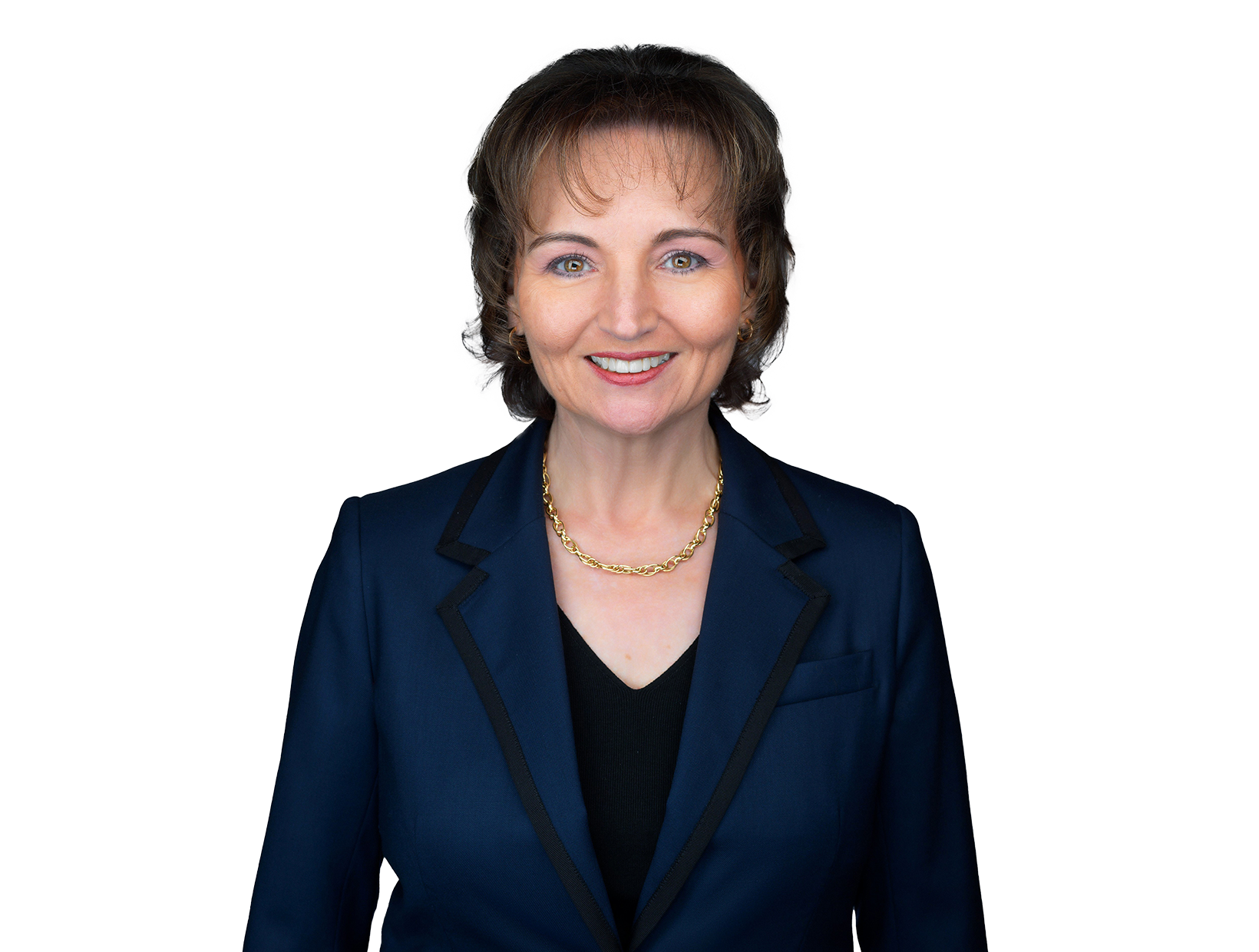Blog
En Banc Federal Circuit Grants Google a New Trial in EcoFactor Case
Fish & Richardson
Authors
-
- Name
- Person title
- Principal

-
- Name
- Person title
- Principal

-
- Name
- Person title
- Principal

On May 21, the U.S. Court of Appeals for the Federal Circuit, sitting en banc, released its opinion in EcoFactor, Inc. v. Google, LLC. In an 8-2 decision, the court reversed a $20 million jury verdict, holding that the Western District of Texas improperly admitted expert testimony on damages. At issue was whether a damages expert’s calculation of a reasonable royalty rate was supported by sufficient facts and data as required by Federal Rule of Evidence 702. The decision could have far-reaching impacts on patent litigants, as it reaffirms the role of the court as gatekeeper and may lead to higher scrutiny on expert opinions.
Background
EcoFactor owns U.S. Patent No. 8,738,327 related to the operation of smart thermostats in HVAC systems. EcoFactor sued Google in the Western District of Texas alleging that Google’s Nest thermostats infringed the ’327 patent. Google filed a Daubert motion to exclude the opinions of EcoFactor’s damages expert, Mr. Kennedy, as unreliable under Rule 702. The district court denied that motion and allowed EcoFactor’s damages expert to testify at trial.
A jury found that Google infringed claims of the ’327 patent, whereafter Google renewed its motion for judgment as a matter of law (JMOL) of non-infringement and also moved for a new trial on damages, arguing that Mr. Kennedy’s testimony should have been excluded from trial because it was unreliable. The district court denied both of those motions. On appeal, Google argued that the district court erred by, inter alia, denying its motion for a new trial on damages.
Panel decision
A three-judge panel of the Court of Appeals for the Federal Circuit first rejected Google’s arguments seeking to set aside the liability finding. The panel then addressed Google’s arguments that the district court abused its discretion in denying a motion for a new trial on damages because Mr. Kennedy’s testimony was based on unreliable methodology. This issue is at the heart of the en banc proceedings.
At trial, Mr. Kennedy relied on three lump-sum license agreements (“Schneider,” “Daikin,” and “Johnson”) to arrive at an “$X” royalty rate (the actual rate is sealed). Each license agreement set forth lump sums that the licensee would pay EcoFactor and further contained “whereas” clauses noting that the lump sums are “based on what EcoFactor believes is a reasonable royalty calculation of [$X] per-unit.” Mr. Kennedy also relied on testimony of EcoFactor’s CEO, who testified that the lump sums contained in the license agreements were based on the $X royalty rate and past and future projected sales for each licensee.
In the original appeal, Google argued Mr. Kennedy’s testimony was unreliable and inadmissible for multiple reasons, including that Mr. Kennedy’s $X royalty rate was insufficiently tied to the facts of the case and that he failed to apportion for the single asserted patent, given the license agreements were for EcoFactor’s entire patent portfolio.
The panel split on this issue. Judge Renya authored the majority opinion, joined by Judge Lourie, affirming the damages award and finding the district court did not abuse its discretion in refusing to grant a new trial on damages. The majority rejected each of Google’s arguments, finding that Mr. Kennedy’s $X royalty rate derived from the lump sum agreements was “sufficiently reliable for admissibility purposes,” that his “damages opinion relied on sufficiently comparable licenses,” and that he “sufficiently apportioned the value of the ’327 patent for the issue to be presented to the jury.”
In dissent, Judge Prost agreed with Google that Mr. Kennedy calculated his $X royalty rate in an unreliable way and that the rate did not reflect the value of the ’327 patent alone. Judge Prost focused on the language of the licenses, noting that two of them contain provisions stating that the lump-sum payment is not based upon sales and does not reflect or constitute a royalty, and that the “whereas” clauses that Mr. Kennedy relied on reflected only the view of EcoFactor, not all parties. Further, Judge Prost disagreed that Mr. Kennedy adequately accounted for the “impact of the specific remaining patents in EcoFactor’s portfolio” and thus would have found his analysis inadmissible for failure to apportion.
En banc decision
Google petitioned the Federal Circuit for rehearing en banc, which the court granted, vacating the panel’s opinion. The sole issue for rehearing was “the district court’s adherence to Federal Rule of Evidence 702 and Daubert v. Merrell Dow Pharmaceuticals, Inc., 509 U.S. 579 (1993), in its allowance of EcoFactor’s damages testimony assigning a per-unit royalty rate to the three licenses in evidence in this case.” The court issued its en banc opinion on May 21, granting Google’s request for a new trial on damages but reinstating the panel’s opinion on all other issues.
The full court found that the district court abused its discretion in denying a new trial on damages because Mr. Kennedy’s expert royalty rate opinion was unreliable under Rule 702 and Daubert. The court walked through Rule 702 and Daubert, stressing that the commentary to the 2023 amendment to Rule 702 indicates that both “the sufficiency of an expert’s basis” and “the application of the expert’s methodology” are questions of admissibility, not weight, and that courts must act as gatekeepers in this regard.
Turning to Mr. Kennedy’s damages opinion, the court found that the lump-sum licenses on which he relied were insufficient to support his conclusion that the prior licensees agreed to the $X royalty rate. Critical to the court’s opinion was its observation that “Mr. Kennedy did not merely assume…the premise that the licenses reflected such a rate; he put forth his own opinion that they do so, asserting the proposition with the imprimatur of his expertise.”
While each license contained a “whereas” clause stating that EcoFactor believed $X is a reasonable royalty, the court found that that clause merely reflects EcoFactor’s unilateral belief and provides no support that the licensees agreed to pay the $X rate or that $X was a reasonable royalty. The court noted that, in the Daikin license, the $X royalty rate does not appear anywhere else besides the “whereas” clause, and the license states in its operative payment provision that the lump sum amount is not based upon sales and does not constitute a royalty. The court also noted that the Schneider license contains a clause stating “nothing in this clause should be interpreted as agreement by Schneider that $[X] per unit is a reasonable royalty.” Based on contract interpretation principles, the court found that the plain language of the licenses did not provide a basis for Mr. Kennedy to opine that the parties agreed to an $X per unit rate in agreeing to the lump-sum payment amounts.
The court then addressed other evidence presented in support of Mr. Kennedy’s opinion and found it lacking as well. Regarding EcoFactor’s CEO’s testimony that the lump-sum payments were calculated by multiplying each licensee’s past and future projected sales, the court found this testimony lacked record support, particularly because the CEO had not accessed any of the sales data necessary for him to have arrived at his opinions. The court considered the remaining record evidence, including market share data, and concluded it is not relevant because it did not form the basis of Mr. Kennedy’s opinion regarding the royalty rate purportedly reflected in the licenses.
Ending its merits analysis, the court concluded that a fundamental premise of Kennedy’s testimony — that the three licensees agreed to pay the $X rate — was not based on sufficient facts or data as required by Rule 702. Mr. Kennedy’s reliance on the unilateral “whereas” recital of each license as representing the licensees’ agreement to the $X rate was untethered from the licenses and unsupported by the evidence upon which Mr. Kennedy relied. The court further found that the district court’s decision to admit Mr. Kennedy’s testimony was prejudicial and concluded that it could not be sure that the error did not influence the jury’s damages award. Accordingly, the court held that the district court abused its discretion, reversed its denial of Google’s motion, and remanded for a new trial on damages.
Notably, the full court also called attention to the fact that the district court did not provide any rationale for its ruling that Mr. Kennedy’s testimony was admissible or for its denial of Google’s motion for a new trial. It stated that this “absence of reviewable reasoning may be sufficient grounds for this court to conclude the district court abused its discretion.”
Judge Reyna, with whom Judge Stark joined, concurred in part and dissented in part. The thrust of Judge Reyna’s dissent is that the en banc court improperly expanded the scope of the proceeding by basing its analysis in contract interpretation. Further, he argues that the majority erred by ruling that Mr. Kennedy’s testimony should be excluded in its entirety, rather than just the portion concerning the royalties under Georgia-Pacific factor one. And even assuming that the majority’s conclusion on contract interpretation is correct, Judge Reyna argues that Fifth Circuit law would require the court to affirm under the harmless error doctrine, as the improperly admitted $X royalty rate evidence was duplicative of properly admitted evidence.
Judge Stark also concurred in part and dissented in part, joined by Judge Reyna. Judge Stark objected to the majority opinion on several grounds, including that it could be misinterpreted as constraining damages experts in a manner not called for by Rule 702 or Daubert; that the majority may be misunderstood as inviting district court judges to resolve fact disputes under the guise of evaluating whether experts may testify; and that the district court’s failure to create a fuller record does not constitute an abuse of discretion. In his view, the proper remedy would be to vacate and remand for a better explanation from the district judge rather than order a new trial.
Takeaways
The en banc court’s decision is one likely to be cited by patent litigators for many years to come. It reflects a mandate from the court that trial judges must take their gatekeeping role seriously — both in terms of evaluating the foundation of damages experts’ opinions and explaining the reasoning for their admissibility-based decisions. District courts may further view this decision as expanding their gatekeeping role to more deeply probe the factual bases for an expert’s methodology pretrial.
As for practitioners, Daubert motions on damages experts are already prevalent in patent law, and this decision is likely to make them an even more attractive avenue for alleged infringers. On the flip side, we can expect patentees to try to fend off increased Daubert attacks by citing Judge Stark’s dissent, which attempts to cabin the majority’s holding to only extreme situations where the expert’s testimony “is undoubtedly contrary to a critical fact.”
The opinions expressed are those of the authors on the date noted above and do not necessarily reflect the views of Fish & Richardson P.C., any other of its lawyers, its clients, or any of its or their respective affiliates. This post is for general information purposes only and is not intended to be and should not be taken as legal advice. No attorney-client relationship is formed.